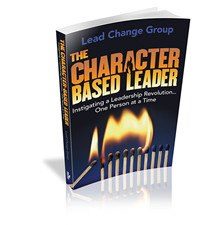
 Scene 1: Your previous boss is gone, a new one has been hired and is scheduled to start tomorrow.
Scene 1: Your previous boss is gone, a new one has been hired and is scheduled to start tomorrow.
- You lead a great team that is in the midst of change.
- A new database that was supposed to help the team is not what everyone thought it would be and has significantly increased workload.
- Now you’re struggling to meet goals and not knocking every goal out of the park like you once did.
- Everyone is tired, and stressed but trying hard to stay positive and take ownership.
So even though the new boss seems likable, nerves are high.
As you anticipate the change, how will you engage with the new boss?
Several years ago I was in that situation. I am proactive by nature and wanted all the cards on the table as quickly as possible. And, at the same time, I wanted to be considerate of his transition to a new company and a new job while commuting to another state every weekend.
When week three rolled around, I told him I would like to meet with him for one hour as his time allowed.
When we met I was prepared with a binder of information that included:
- Pictures of the team.
- History of the team. (We were pretty out of the box in all of our methods and I didn’t want that to be a surprise!)
- Organizational charts.
- All of our metrics.
- Information about our current state and the plan we were working on.
My intention was to be completely honest about the strengths and struggles of the team. Some of what that open binder accomplished was a great strategy, and some of it was a wonderful surprise, it:
- Helped him learn more about his job and the company.
- Invited him to join our team.
- Opened his eyes to see the people instead of the “human resources.”
- Introduced him to our fun and innovative side.
- Birthed an instant ally that knew we knew our business and were on it!
Years later, I realized that open binder was the difference between my team’s easy transition to the new leader and the struggles many of my peers faced as they held their cards close to their chests. While they felt micro-managed we felt freedom and support.
Scene 2: The economy is struggling and layoffs are becoming more normal for many organizations.
As I watched those layoffs occur, I’ve noticed that many times the people that were cut were not necessarily resistant to leadership or change, and not necessarily under-performers. Often they were the quiet ones who were good at leading themselves. People who did their work and never ever called attention to themselves. Many times, their work had a fundamental role in an organization, but in their silence, their value was forgotten.
So if you are introverted, hate drawing attention to yourself, or just don’t like someone hanging over you, what do you do? Dare to be a little uncomfortable, be proactive and call a short meeting with your boss or send a brief e-mail to them once a month.
Emphasis on a short meeting or a bulleted e-mail like this:
Hey Boss:
- Here’s what I’m working on
- Here’s how my results measure up over last month’s
- Here’s a problem I faced and how I solved it or a problem I am facing and what I am doing…
- Here’s a challenge I’m facing and I may need your help.
Just keeping you in the loop. Please let me know if you have any questions.
Guess what you just did?
- You invited them into your world.
- You reminded them of the value you bring.
- You showed them how you think and the types of problems you usually solve that no one ever knows about.
- And you enlisted them to help you solve a future problem.
Your leaders don’t know what you know, they can’t see what you see. No matter where you sit, it is your job to bring that understanding to them.
Management is not leadership; leadership is leadership. If you seek to lead, invest at least 50% of our time in leading yourself — your own purpose, ethics, principles, motivation conduct. Invest at least 20% leading those with authority over you and 15% leading your peers.” Dee Hock
How about you? 
Image Credit: iStock










